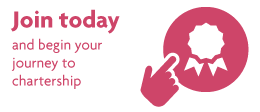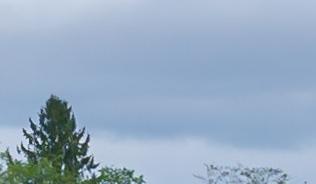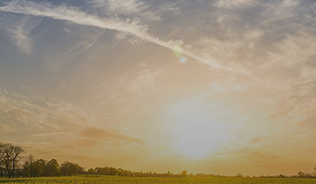11 February 2015 was the very first United Nations International Day of Women and Girls in Science, which aimed to recognise the importance of full and equal access to, and participation in, science for women and girls around the world. Born from the 2030 Agenda for Sustainable Development, the day aims to empower and create dialogue around the equality of women and girls in the industry.
On this day each year, we choose to celebrate the incredible contributions of our members and explore how they have shaped their career as a woman in science.
Check out the following interviews with three women who have shaped the IES.
IES Chair: Julie Hill
Julie Hill is the current Chair of the Council of the IES and has been a member since 2016. She has an academic background in English, philosophy, politics and ecology, and has had a career in the environment movement. She is presently Chair of the UK’s Waste and Resources Action Programme, a charity working to create a world where resources are used sustainably. She is also Deputy Chair of the Advisory Committee for Social Sciences for the Food Standards Agency, and a Visiting Professor at the University of Surrey.
What made you want to pursue a career in the environmental sciences?
I originally wanted to be a political journalist (having studied English, philosophy and politics) but I got a temporary job organising a conference on sustainability issues (way back in 1983 when sustainability was a very new idea). I loved the people and the subject, so stayed in the field, and took a certificate in ecology and conservation to add some scientific credibility to my cv. My work has mainly involved policy and political analysis, but it is good to have scientific knowledge to back that up. Recently, I have become very interested in material science, although I cannot claim any academic credentials.
What was the biggest learning you had when you first started working in the field?
There is huge inequality in the world – the global North needs to consume less, but often the South needs to consume more to have a decent standard of living. The challenge is to achieve good quality of life and wellbeing on much less material resource and consequent environmental damage.
What piece of advice would you give other women working, or looking to pursue a career, in the environmental sciences right now?
It is a great field to be in, you are doing something important. And you can progress to the top of your profession if that is what you want - don’t let ‘imposter syndrome’ hold you back.
Vice Chair: Eleni Antoniades
Eleni is a Project Environmental Lead with more than 17 years’ experience in the Environmental Impact Assessment (EIA) and Construction Environmental Management of infrastructure projects. In recent years, her focus has been on the delivery of aviation and defence infrastructure working on reducing the environmental impacts of the detail design and construction in highly sensitive environments. Her experience is also in highway, road, rail and tunnelling projects.
What made you want to pursue a career in the environmental sciences?
Growing up on a rapidly developing Mediterranean island, growing up with a father who is a civil engineer and visiting all his new highway construction sites as a teenager and loving the Environmental Science module of my Biology A’ Level. I found that I could understand the chemistry and biology it involved naturally, I really enjoyed the field work and came first in all the exams without having to study really hard, it was the subject which I enjoyed the most at school.
If you could change anything in your industry, what would it be?
I have been applying my environmental science skills to the industry of engineering and construction. There’s still not enough balance in terms of women in project management roles in engineering and construction in the UK. I see a different pattern in other countries like Greece. Despite the Equality Act 2010, the percentage of women working in construction remains low at 14%. I would love to see a balanced workforce in construction, with more women in leadership roles on site and in project management.
Despite the Equal Pay Act 1970, the gender pay gap, calculated as the difference between the median annual salary of male and female respondents found in this year’s IES Salary survey was 12.8%. This pay gap shouldn’t be acceptable at any organisation.
What piece of advice would you give other women working, or looking to pursue a career, in the environmental sciences right now?
A career in environmental science is rewarding and fulfilling. Environmental science roles now exist across different sectors and there are environmental science opportunities in sectors which didn’t exist 20 years ago, from the hospitality sector to the medical industry. Find the role and working environment that is right for you.
Vice President: Prof. Carolyn Roberts
Carolyn is a water resource management specialist with many years of experience of research and consultancy work in the UK and overseas, mainly in relation to the impact of developments such as housing, mining, waste disposal and industrial premises on water quantity and quality. She has published widely on aspects of water management, flooding and drought, and was the Technical Advisor to Gloucestershire County Council following the serious flooding of summer 2007. She also occasionally undertakes specialist research for the police, looking at the transport of human bodies in river and canal networks, particularly in connection with murder inquiries.
What was the biggest learning you had when you first started working in the field?
Do you mean literally ‘in the field’? That’d be ‘take a good packed lunch and a friend with you, and don’t fall in the river’! But in general, I think you need to keep your eye on the big picture, and not get deflected by ideas that are superficially attractive, but actually lead into dead ends (I’m not talking about the murder victims, here!). I mean ideas such as hybrid cars, for example – just go electric if you want to make better progress towards zero carbon emissions – the hybrids are a distraction!
What is your biggest career achievement so far?
Two things spring to mind – I was absolutely delighted to be interviewed by Jim Al-Khalili for ‘The Life Scientific’ programme on BBC Radio 4. I had no idea anyone would be interested in my activities and was shocked to receive over 300 messages afterwards. But I was also lucky enough to be appointed as the first Professor of Environment at Gresham College. The remit was to follow in some distinguished footsteps, by delivering public lectures on environmental themes. The College was founded in 1597, was the original home of the Royal Society, and Sir Christopher Wren and Robert Hooke were early Gresham Professors. It’s fortunate that in the nineteenth century they dropped the requirement to deliver each lecture in Latin as well as English….
If you could change anything in your industry, what would it be?
A lot of organisations, including governments, are lukewarm about actually doing something genuine to improve the environment. We have such major problems today with climate change, biodiversity loss, and pollution with plastics for example, but an awful lot of people can’t see beyond their, and our, current unsustainable activities. When I was much younger, I told an interviewer that I wanted to see a world where children could paddle in streams, even in towns, knowing that they would not be harmed. That seemed unbelievable to the interviewer then, and it’s still not properly achieved. But why not? I want to change people’s attitudes.
We are so grateful for the contributions of our IES members who continue to pave the way for women in leadership and in the science community. Join in the discussion on Twitter, and tell us the women in science that inspire you today.








